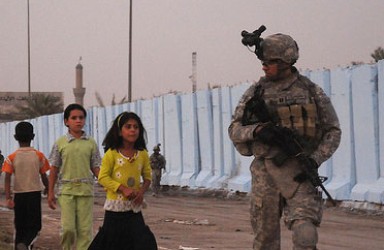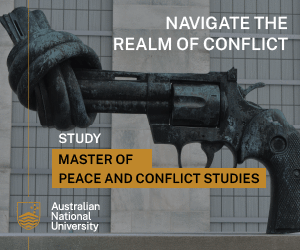New Labour and post-war immigration policy
After winning the 1997 elections, New Labour promised to deliver innovative outputs through its political programme that no government has managed before. But the immigration policies under the New Labour Government can be characterised as fairly mixed.
Between Europe and America: Polish choices for the 21st Century
This paper aims at understanding Polish foreign policy over the last decade with a view to predicting future policy. It analyses Polish foreign policy with reference to three rationalist paradigms: defensive realism, offensive realism, and neo-liberal institutionalism.
The Thrust of Wendtian Constructivism
Despite being a state-centrist scholar of international politics, Wendt criticizes neorealists and neoliberals for reifying the structure of states system and taking for granted its ontological and ideational properties, which precludes us from considering and assessing the potentials for structural and institutional change.
Why was so much at stake in Cuba in 1962?
The Cuban missile crisis of October 1962 constituted a classic foreign policy dilemma between the United States and the Soviet Union and was one of the most dangerous confrontations of the Cold War. This essay gives an overview of the complexity of the thirteen-day crisis. It shows that the balance of power, the credibility of the two superpowers and the future of Berlin were at stake, and makes clear how close it actually came to a nuclear showdown.
EU-US intelligence sharing post 9/11: predictions for the future
This research seeks to explore whether, and to what extent the intelligence sharing has increased between the US and the EU member states post 9/11, and to offer predictions on future trends. Different potential scenarios in future intelligence cooperation are presented, based on the threat of Islamic terrorism to the US and EU.
EU-Russia Energy Relations: Lack of Unity in the Union
Since the 1990s, the European Union has achieved various successes. A key example is the enlargement to include a large number of Central and Eastern European countries. During this time, the EU has also experienced some failures, such as in the case of energy relations with Russia.
Should Martin Wight be so pessimistic about IR?
The aim of this essay is to analyse the reasoning behind Martin Wight’s fears that International Relations, as an academic subject, does not contain a sufficiently large enough philosophical background, which he may have feared prevented the study of the subject from being taken seriously, and also, prevented IR as a discipline from sufficiently framing the philosophical nature of interactions that nation-states undertake on the international arena.
Postmodernism and security challenges in the developing world
Postmodernism is “seeking out and challenging the endlessly unfolding relationship between knowledge and power, rejecting metanarratives and the Enlightenment project, and seeing ‘truth’ as a temporary social construction limited in time and space”. But do postmodernists have anything meaningful to say about the security challenges facing societies in the developing world?
Islamic Fundamentalism in Central Asia: Evaluating Uzbekistan’s Response
Ever since the dissolution of the Soviet Union, Islam has undergone a revival among Central Asian societies. The hitherto communist and atheist states with arbitrarily imposed constraints on the freedom of worship, started referring to their religious roots as a step in national identity formation.
To what extent is the ‘battle of Sadr City’ a case of Urbicide?
Viewed within the conceptual framework of Urbicide, which posits that cities have become the expressed target of military operations, the battle of Sadr City reveals the inherent objectives of counter-insurgency (COIN) theory — the annihilation of place.













